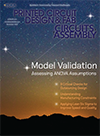News
IRVING, TX — EMS provider Elcoteq Network Corp. has opened a new plant in Bangalore, India, and will manufacture telecommunications equipment there. The facility will employ approx. 1,000 people and manufacture products, including mobile phones and communications network equipment, for global customers operating in India and the Asia-Pacific.
"With a population of over one billion people, mobile-phone penetration of a mere 3% and a telecom services market growing at over 100% annually, India represents one of the most exciting regions for handset OEMs and EMS providers," said president and CEO Jouni Hartikainen. "Given the huge opportunity, cost advantages, availability of highly skilled manpower, infrastructure and software development facilities, proximity of key suppliers and the government's agenda for telecommunications and electronics manufacturing, we find this an extremely attractive location."
"This inauguration is more than the launch of a manufacturing facility. It is about revolutionizing the EMS sector in India and tapping the vast opportunities it offers. The telecommunications sector in India has surpassed all forecasts," added chairman Antii Piippo.
ARLINGTON, VA - After bouncing back in February from the annual January dip, electronic component orders took a slight downturn in March, according to the monthly order index compiled by the Electronic Components, Assemblies & Materials Association (ECA).
"Many manufacturers believed that this year's first quarter would be a repeat of the strong growth in Q1 2004," said Bob Willis, ECA president. "Depending on what happens with end markets, the fluctuations might continue into the second quarter."
In addition to general industry caution, Willis sites factors such as the rising price of wholesale oil, trade imbalance and the federal deficit having a dampening effect on the market.
The ECA represents manufacturers and producers of passive and active electronic components, component arrays and assemblies, and materials and support services. It is a sector of the Electronic Industries Alliance (EIA) that reportedly represents 80% of the U.S. electronics industry.
April 8 -- PBR Seminars will launch "Differential Traces and Impedance," a two-hour technical Webinar, on April 27 from 10 a.m. - 12 p.m. PDT (1-3 p.m. EDT). Doug Brooks, a signal integrity expert who regularly speaks at the PCB Design Conferences, is the featured speaker.
According to Brooks, differential circuits and differential signaling are becoming more common on today's PCBs. Differential circuits have several advantages over their single-ended counterparts, including a better signal/noise ratio, more precise signal timing and immunity from external noise sources. Brooks will explain the advantages and disadvantages of differential circuits compared to single-ended circuits, and cover the sometimes confusing issue of common-mode noise as it applies to each type of circuit.
For more information or to register, visit www.pbrseminars.com.The Webcast will also be available after the seminar, and additional Webinars will be announced soon.
PBR Seminars is a joint venture between UP Media Group and PCB007.
Press Releases
- Strong signal for the industry: productronica 2025 drives positive industry trend
- Sharpen Your ESD Skills: CE3S Announces Desco’s First ANSI/ESD S20.20 Training Series for 2026
- Mycronic Secures Turnkey Solution Order from a Nordic Defense Actor
- Altus Partners with Sellectronics to Enhance Manufacturing Capabilities with PVA Delta 8 System


